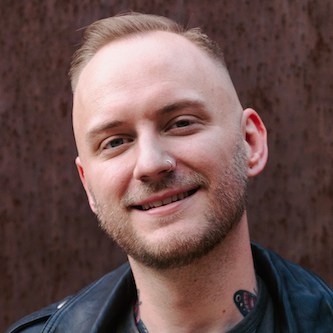Have you, as I have, experienced reactive and unhealthy accountability in your life? Have you found yourself hiding your struggles, or only sharing your unhealthy choices after you returned to them? Were you then shamed by others after you finally mustered up the courage to open up? In this post I address the difference between “accountability” and proactive, healing support. I’ve found that only the latter produces life-changing results.

What Is Biblical “Accountability”?
We throw the word “accountability” around frequently. We often use it in the context of one person asking another to make sure they do (or don’t do) something. The English word closest to “accountability” is “responsibility.” Think about that. When we ask others to hold us accountable, we’re asking them to be responsible. To help us to not return to unhealthy choices — or to follow through on healthy commitments, such as reading our Bible or loving others better.
But in the Bible, the word closest to accountability is “account.” The mentions of “account” have to do with someone giving an “account” of oneself to God (Romans 14:12, Matthew 12:36, Hebrews 4:13, 1 Peter 4:5). What the Bible is saying is that it is up to each of us, as individuals, to be accountable to God for our choices. It is not another person’s responsibility to hold us accountable. We each need to follow through and partner with God as He develops healthy desires and abilities within us.
A more accurate word for what we are designed to have may be “support”.
Some may argue this is semantics, but I think this is one reason why “accountability” is often reactive, unhealthy, and limiting to our growth.
Where Do We Find Healing?
Proactive and healing support involves a daily choice of reaching out for help, within a safe community, to process the pain and stresses that drive our thinking and behaviors. We have to recognize that we don’t just end up back in our unhealthy choices at the drop of a hat. We go through recurring patterns and cycles before ending back in the places we swore we’d never go again.
We begin to react to challenges, criticism, stress, and start believing lies and feeling emotions like anger, sadness, or fear. We then begin thinking of ways to cope with or escape these emotions. Often, these cycles of trigger and response operate at a subconscious level. They have been ingrained in us, leading to fixed brain pathways that we must intentionally renew.
What we need is help in these moments when our reactive thinking and emotions begin. We need support, encouragement, help, and love, to grow and overcome unhealthy choices. Fortunately, God has given us an incredible gift through the body of Christ to do life together in a much deeper way than we often do.
Safe Support Jumpstarts Our Healing
We have the option of experiencing health and healing as we live openly with safe people. Doing so helps us to understand why we return to destructive behaviors, and to steer ourselves well to prevent future harmful choices. Again, healing begins for us when we develop a lifestyle of reaching out rather than acting out.
I stayed trapped, for years, in porn addiction, a food addiction, deep anger, and a multitude of other struggles, as I practiced reactive and unhealthy accountability rather than proactive and healing support.
Sure, I had Internet-filtering software on my devices and an “accountability partner,” but this often just resulted in a weekly meeting with a friend to confess my slip-ups after living in isolation for another week. The conversation frequently ended with my futile commitment to try harder to not sin. Yes, it was a great start to confess my sin to others (as we are told to do in James 5:16), but I was seriously limiting my growth with only having those weekly interactions to help me gain healing.
Too, I was fighting the wrong battles. I focused primarily on my behavior and sin avoidance, rather than seeking healing and support for the underlying shame, emotional wounds, and unresolved areas in my life that had set me up to cope. To overcome these, I had to invite Jesus and others in every day to help me understand why I struggled and to understand the unresolved areas of my heart and mind that needed healing. Only then could I stop living reactively and experience healing and fulfillment. So rather than just confessing my anger to my “accountability partner,” I began seeking proactive and healing support for my anger.
In doing so I discovered that my anger was fueled by the deep, gnawing fear that grew out of my experiencing frequent rejection by friends and family as a kid. As many of us do, I learned to protect myself with anger. As an adult, my lashing out got even worse. My simply trying harder to stop being angry only intensified my struggle.
Allowing Jesus to Partner With Us
To address the fears behind my anger and self protection, I had to allow the truth of who Jesus says I am to affect my thinking. As I began to trust His Word as I reached out to others to help me process my anger, it finally began to calm down. As I was freed up to be more centered and less reactive, I was able to love others better and let them in.
When we invite Jesus and others in to help us, encourage us, and do life together, we can begin to understand our reactionary patterns of thinking and acting that set us up to return to unhealthy choices.
The healing and freedom we so desperately want and need is possible. It starts with safe, proactive, healing support — and the anticipation that Jesus can heal us, set us free, and help us to live the thriving life He created us for.
Let’s rethink the accountability mentality as we seek proactive and healing support. Let’s shift our focus to owning our growth and partnering with God to experience healing and freedom. Stay tuned for part two of this post for practical steps to implement proactive and healing support.



